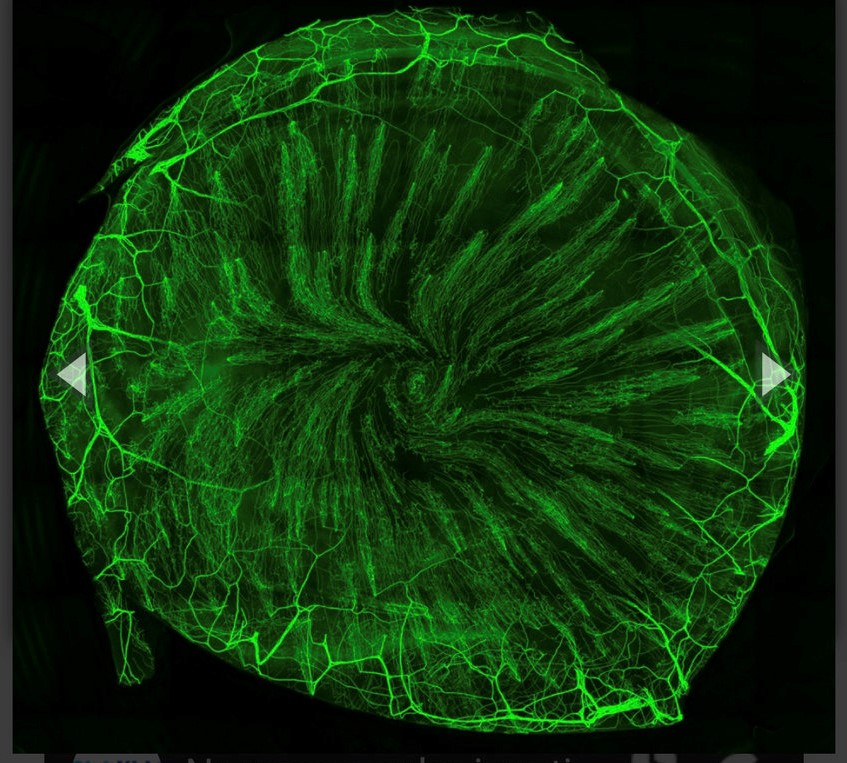Aug 10, 2020
Improving treatment options for neurotrophic keratITIS to prevent blindness

Dr. Gregory Borschel (The Hospital for Sick Children, Research Institute) is one of our 2020 research grant awardees. Dr. Borschel, a surgeon and assistant professor at the University of Toronto, will use the grant funds, made possible by the generous support of our donors, to find ways to improve treatment options for neurotrophic keratitis (also called neurotrophic keratopathy). Neurotrophic keratitis, a degenerative blinding eye disease, can affect anyone who’s corneal nerves are damaged, including individuals with diabetes, eye injuries, genetic conditions or cancers of the eye. Keep reading to learn more about neurotrophic keratitis and Dr. Borschel’s research.
Neurotrophic keratitis
Neurotrophic keratitis affects the clear outer layer of the eye, called the cornea, which bends (or refracts) light and is responsible for focusing most of the light that enters the eye.

The cornea contains many nerve endings and is one of the most sensitive tissues in the body. These nerves help prevent injury by triggering safety responses like blinking, production of tears, and wound healing in response to stimulation such as touch, foreign particles, pain or extreme temperatures.
In neurotrophic keratitis, these corneal nerves are damaged and patients can’t feel the surface of their eye. As the cornea loses the ability to sense stimulation, it can’t activate safety responses which can lead to repeated injury, scarring and eventually vision loss as light cannot penetrate the injured cornea.
Research into Neurotrophic Keratitis
There are some treatments for neurotrophic keratitis which can improve corneal healing or reduce the risk that the cornea will get injured, however there is currently no reliable cure or way to prevent vision loss. Recently, Dr. Borschel in collaboration with his colleague Dr. Asim Ali pioneered a new surgery where new nerve fibres from donors were implanted, allowing the cornea to feel some stimuli again. While in some patients, this technique has been able to prevent vision loss and even restore sight, it has not worked for every patient. This is the root of Dr. Borschel’s FBC funded project, to find ways to improve this new surgery and identify other treatment options, such as drug treatments to increase corneal nerve regrowth.
Dr. Borschel’s research team has developed an animal model of neurotrophic keratitis which they will use to answer a number of questions including: Are stem cells essential for corneal healing and are these stem cells lost in neurotrophic keratitis? Are there other cell types or molecules secreted by cells that are important for successful nerve transplantation and corneal healing? Are there any drugs to help transplanted nerves survive and improve how quickly the cornea can heal?
Dr. Borschel’s hope is that this work will lead to better and less-invasive treatment options for this debilitating eye disease. As Dr. Borschel explains,
“This project sets the stage for visual restoration in patients that have lost vision due to long-standing neurotrophic keratitis. It also will have the potential to prevent loss of vision in those newly diagnosed with neurotrophic keratitis. Support from FBC is critical to address the needs of patients suffering from conditions such as neurotrophic keratitis, which are potentially treatable thanks to ongoing research.”
With your support, vision researchers like Dr. Borschel are helping advance new discoveries and treatments for blinding eye disease. Support FBC’s fight against blindness by making a donation today!
Join the Fight!
Learn how your support is helping to bring a future without blindness into focus! Be the first to learn about the latest breakthroughs in vision research and events in your community by subscribing to our e-newsletter that lands in inboxes the beginning of each month.

